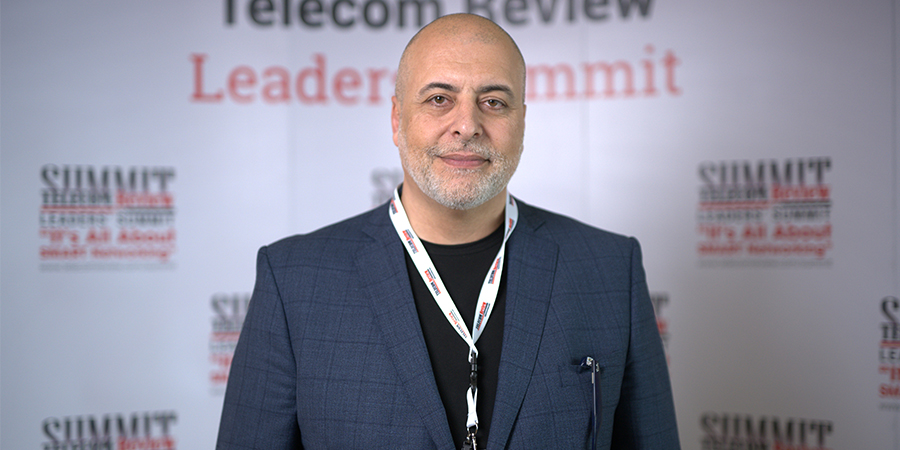At the 15th edition of the Telecom Review Leaders’ Summit, the largest VIP ICT gathering, Telecom Review secured an interview with Samer Geissah, technology strategy and architecture at TELUS to discuss the achievements of the company made during the past year.
With 2021 coming to an end, what have been the main achievements of TELUS this year?
2021 was a very special year full of lockdowns and social distancing. The biggest achievement for us is that we, as a team at TELUS, enhanced collaboration in unique ways and came up with ideas to help our customers and continue to fulfill targets and commitments to our end-users no matter how big the challenge was. So, we are very excited for having performed above and beyond our expectations. Also, the most exciting part is that we didn’t slow down, we are on board with a lot of customers. We brought 5G coverage across Canada to a larger community despite the lockdown situation.
In your own words as a director of technology strategy and architecture at TELUS, and based on your own experience, how does your company face the challenges that occur?
As technology strategy and architecture director at TELUS, our challenge as a team is to continue supporting our customers in expanding their 5G portfolio of services and products together; so, we are cocreating a lot of use cases for 5G and 4G services, working closely with our customers to define the areas of the challenge that they want to address and then developing tailor solutions taking their services to the market. So, what we are successful in doing is that we announce multiple innovation hubs across Canada that revolve around solving the customers’ problems, besides working with our partners at the innovation hub in “Kanata North” with the “Hub350” and Kanata North Business Association and the university of Alberta, for instance.
These are all innovation hubs with full 5G labs that allow us to solve customer problems. We also managed to secure a huge connected vehicle contract with our partner General Motors. Millions of connected vehicles that use the TELUS network as their main provider will be available in Canada.
What innovations can we expect from TELUS in the next decade?
The evolution towards a cloud centric approach for 5G solutions and connectivity solutions will continue to accelerate and that is the challenge for connectivity service providers like TELUS. The challenge is to ensure keeping our customers in focus thus whether it is in health domain, or on the agriculture side, we are working together with our partners to ensure that we have an end-to-end view on how we conserve our costumer, ensuring that the costumer demands are the right demands for us to deliver again those objectives and ensuring that we do so, in an agile manner because the cloud world is very different from the traditional telco connectivity world.
We are taking those steps towards this direction to ensure end-to-end coordination and at the end, the customer gets a service from a dependable secure by design, privacy by design which are the anchor design principles for any telco service. The team worked very hard and we depended not just on our core expertise, architects and engineers, we also have the privilege to enable and empower graduate trainees from various universities across Canada and that really is a differentiator. We are focused on enabling a new generation of engineers through the various GTLP programs which are going to be the anchor providers to our customers. That’s the real differentiator for us in TELUS.
What should we expect from the ICT industry within Canada or the North American region in general?
We don’t have a crystal ball to expect what’s going to happen, but there are clear indications. The world of connectivities is no longer simply delivering a very best in class pipe and TELUS has won many awards throughout the years of the best and fastest network in the world. The challenging opportunities that are coming are more towards how we can get closer with our services to the end-users, latency is going to become a big differentiator for network as we are taking huge steps to partner with IBM to deliver each compute solutions. Also, we’ve partnered with Google to deliver solutions to our customers. These partnerships are a key differentiator for us in delivering low-latency, 5G network slicing and additional network services.
TELUS is very special because in the agriculture business unit and the health business unit, we are acquiring a lot of businesses that deliver services to end-user. The same is happening in connected vehicles and many more various industries. Besides, we do collaboration not just co-creation with our customers because the design thinking methodology starts with identifying the challenge - walking in the customer’s shoes- and from there, defining the solution required to adjust the problem. I expect from the ICT sector in North America and Canada to continue empowering and delivering these key differentiators in the future.









